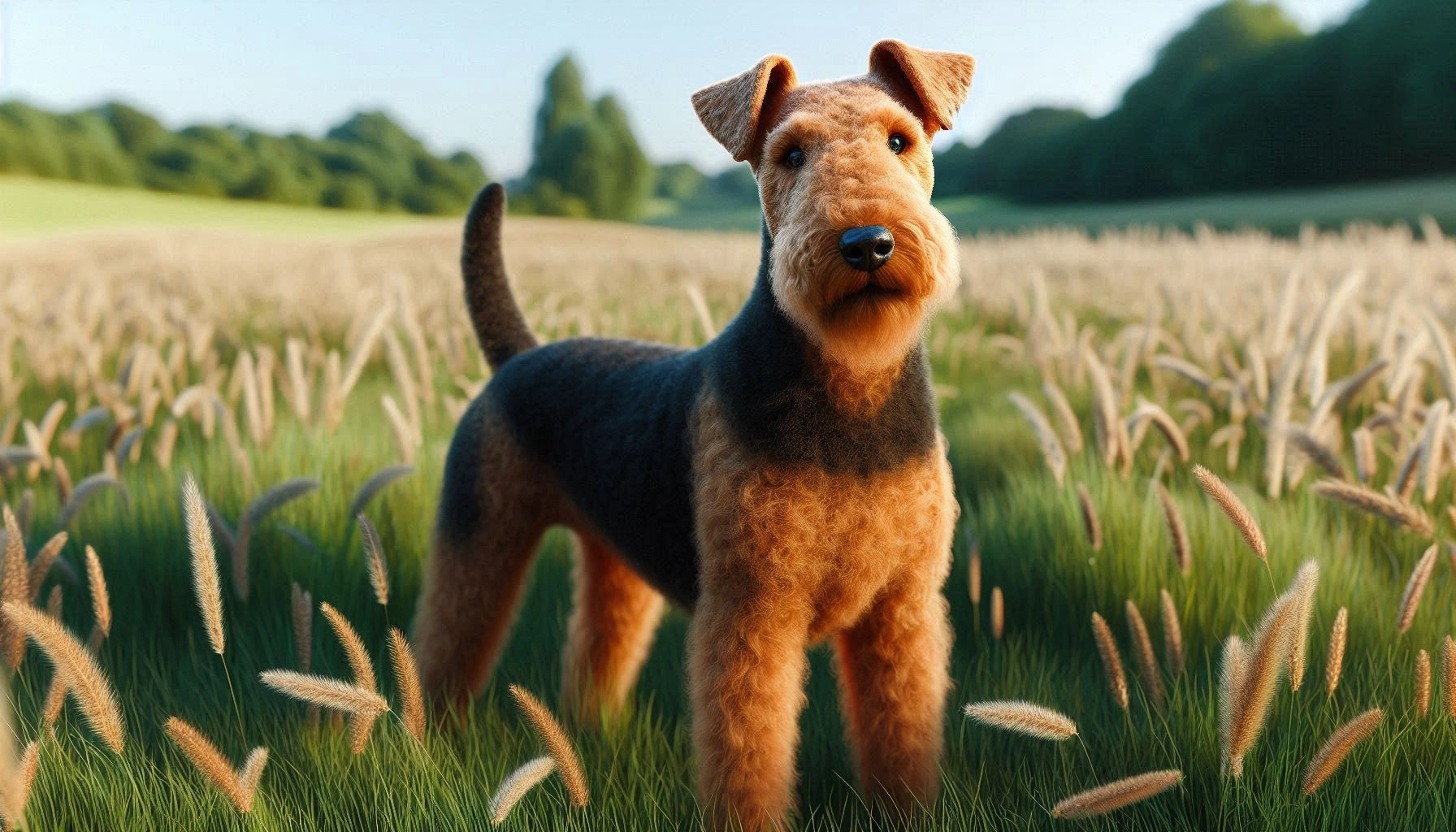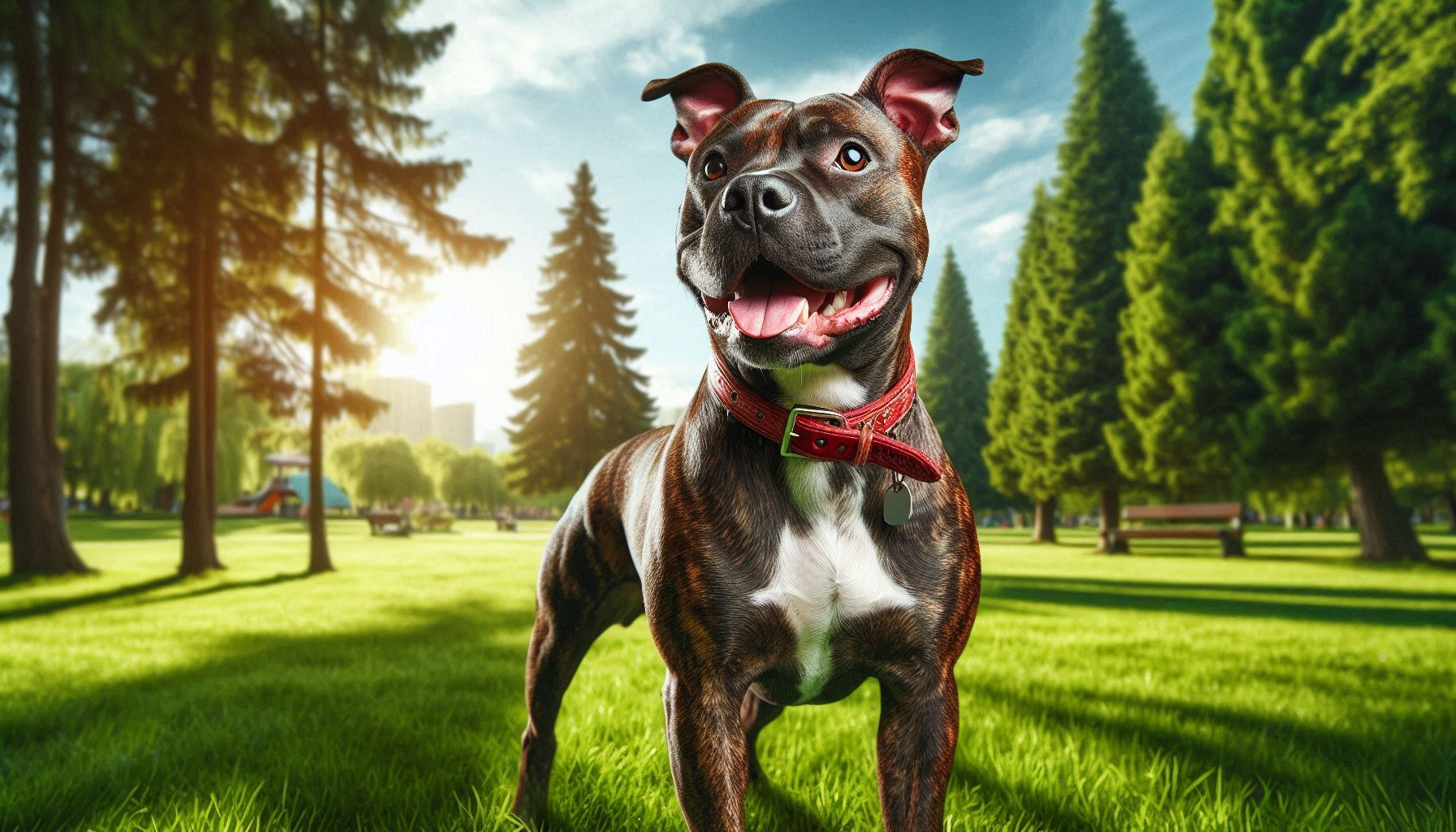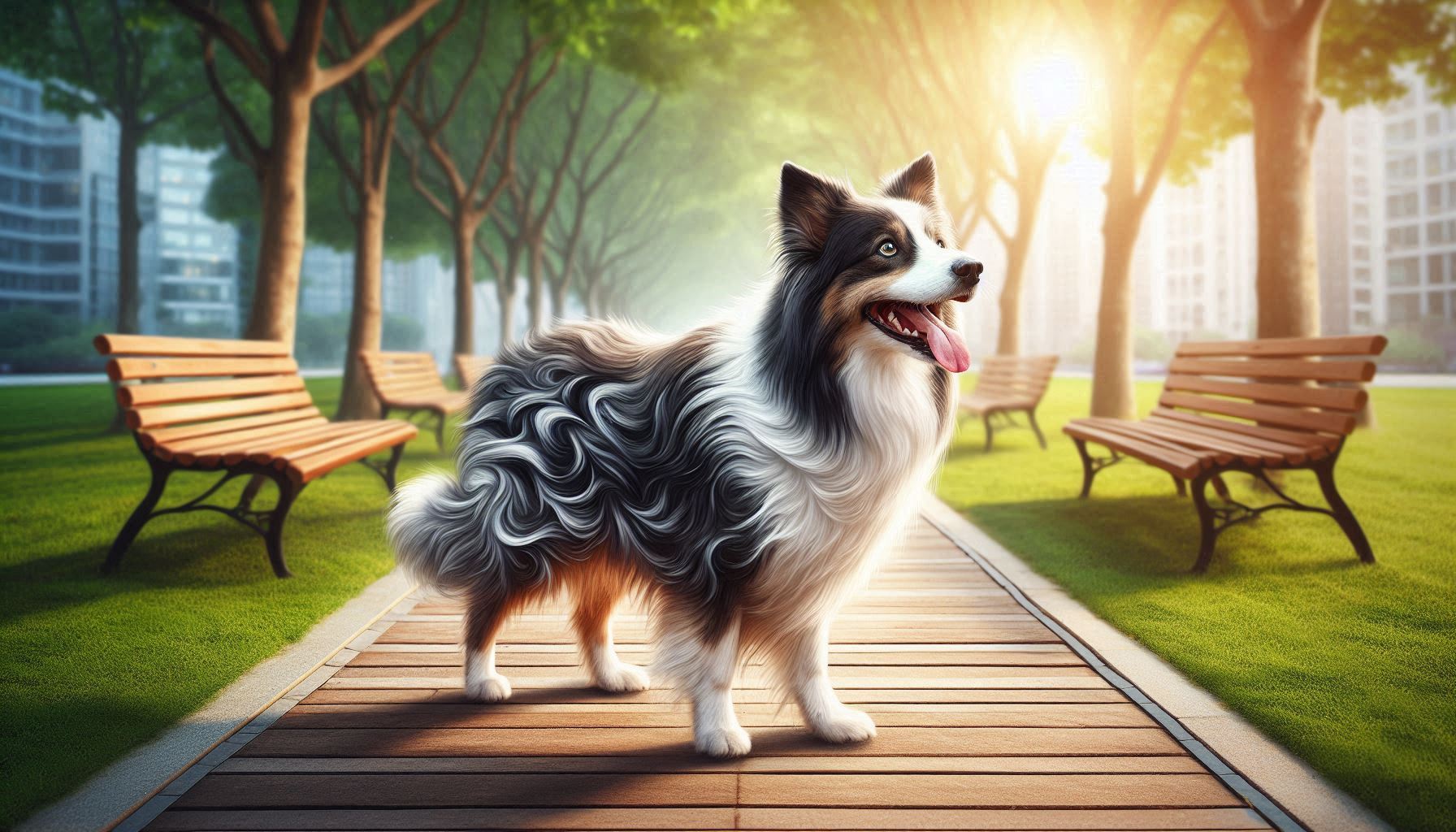Table of Contents
Pointer Dog Breed
The Pointer dog breed, often simply referred to as the Pointer, is renowned for its exceptional hunting prowess, athleticism, and friendly disposition. Distinguished by its elegant appearance and energetic nature, the Pointer has won the hearts of many dog enthusiasts. This breed is particularly popular among hunters and families alike due to its intelligence, trainability, and loyal companionship. Whether you’re an experienced dog owner or contemplating adopting your first pet, the Pointer could be a rewarding addition to your household.
History and Origin
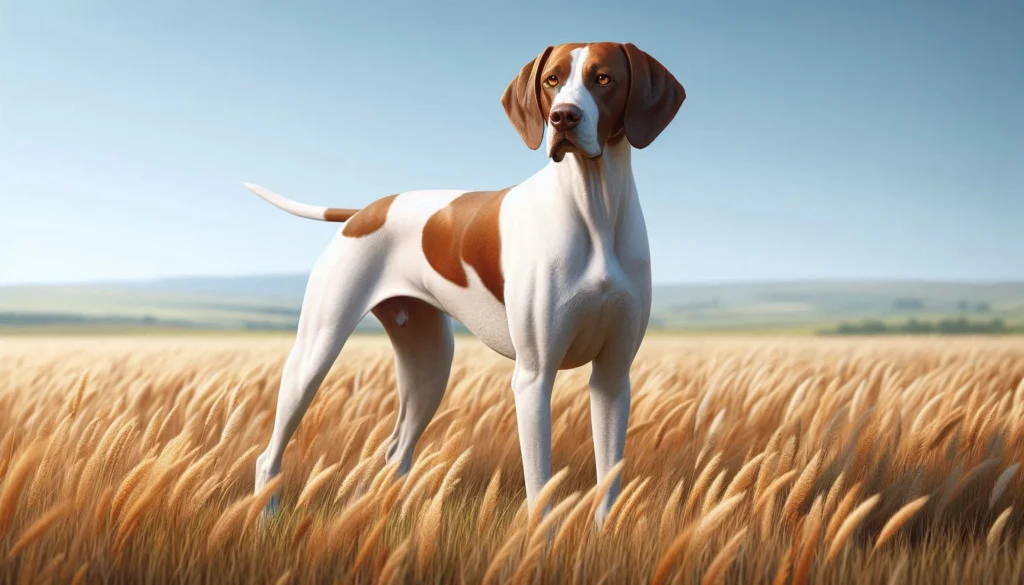
The Pointer’s history dates back to the 17th century in England, where it was initially bred for pointing game birds. The breed likely resulted from crossing several hunting dogs, including the Spanish Pointer, Bloodhound, Greyhound, and Foxhound. Its primary role was to locate and point out game birds for hunters, a task it performed with remarkable efficiency.
Interestingly, the Pointer earned its name from its distinctive behavior of “pointing” standing still and aiming its nose towards the game, indicating its location to the hunter. Over time, this breed’s exceptional skills led to its widespread use and popularity in various hunting expeditions across Europe and America.
Physical Characteristics

The Pointer is a medium to large-sized dog, characterized by its muscular build and graceful stance. Here are some key physical traits:
- Size: Males typically stand between 25 to 28 inches tall at the shoulder, while females range from 23 to 26 inches. Their weight varies from 45 to 75 pounds.
- Coat Type: The Pointer has a short, dense coat that lies close to the body, providing protection without hindering movement.
- Colors: Common coat colors include liver, lemon, black, and orange, often combined with white. Solid, patched, or ticked patterns are all possible.
- Distinctive Features: The breed has a long, tapered tail, a chiseled head with a pronounced stop, and large, expressive eyes that exude alertness and intelligence.
Temperament and Personality
One of the most appealing aspects of the Pointer is its friendly and affectionate nature. This breed is known for:
- Interaction with People: Pointers are highly sociable and form strong bonds with their human families. They are eager to please and thrive on attention and affection.
- Children: Pointers generally get along well with children, displaying patience and playfulness. However, due to their high energy levels, supervision is advised to ensure safe interactions.
- Other Animals: With proper socialization, Pointers can coexist peacefully with other dogs and pets. Their hunting instincts might make them prone to chasing smaller animals, so early training is crucial.
Health and Lifespan
The Pointer is a robust and healthy breed, but like all dogs, it is prone to certain health issues. Common health concerns include:
- Hip Dysplasia: A genetic condition where the hip joint doesn’t fit properly, leading to arthritis and pain.
- Progressive Retinal Atrophy (PRA): A degenerative eye disorder that can result in blindness.
- Allergies: Pointers may suffer from skin allergies caused by environmental factors or food.
With proper care, the average lifespan of a Pointer ranges from 12 to 15 years. To keep your Pointer healthy, regular veterinary check-ups, a balanced diet, and ample exercise are essential.
Care and Grooming
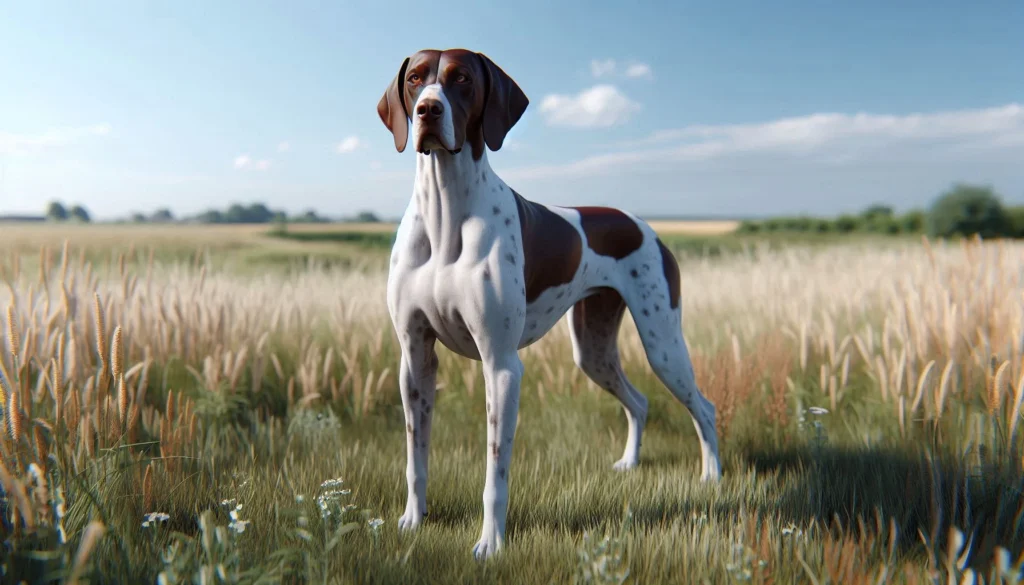
Pointers are relatively low-maintenance in terms of grooming, but they require an active lifestyle to stay happy and healthy. Here are some care tips:
- Grooming: The short coat of the Pointer requires minimal grooming. Weekly brushing to remove loose hair and occasional baths will keep the coat clean and shiny.
- Exercise Requirements: Pointers are high-energy dogs that need plenty of exercise. Daily walks, runs, and play sessions are necessary to prevent boredom and destructive behavior.
- Diet: A high-quality, balanced diet tailored to the dog’s age, size, and activity level is crucial. Consult your vet to determine the best feeding regimen for your Pointer.
Training and Socialization
Training a Pointer can be a rewarding experience due to its intelligence and eagerness to please. However, consistent and positive training methods are essential. Here are some tips:
- Obedience Training: Start training early, focusing on basic commands like sit, stay, and come. Use positive reinforcement techniques, such as treats and praise.
- Socialization: Expose your Pointer to various people, animals, and environments from a young age to develop a well-rounded temperament.
- Challenges: Pointers can be strong-willed and may exhibit stubbornness. Patience and consistency are key to overcoming training hurdles.
Suitability as a Family Pet

Pointers make excellent family pets for active households. They are best suited for:
- Living Environment: Homes with spacious yards or access to large, open areas for exercise. Apartment living is possible if the dog receives sufficient daily exercise.
- Energy Levels: Pointers have high energy levels and thrive in environments where they can participate in activities such as running, hiking, and playing.
- Families: They are ideal for families with older children who can engage in play and exercise. Supervision is recommended for interactions with younger children.
Fun Facts and Trivia
- Nose for Hunting: Pointers have an exceptional sense of smell, making them highly effective hunting dogs.
- Record Setter: A Pointer named “Sensation” is featured on the logo of the Westminster Kennel Club, symbolizing the breed’s prominence in dog shows.
- Affectionate Nickname: Pointers are often called “The Cadillac of Bird Dogs” due to their speed, agility, and elegance in the field.
The Dog Breeds Similar to Pointer Dog
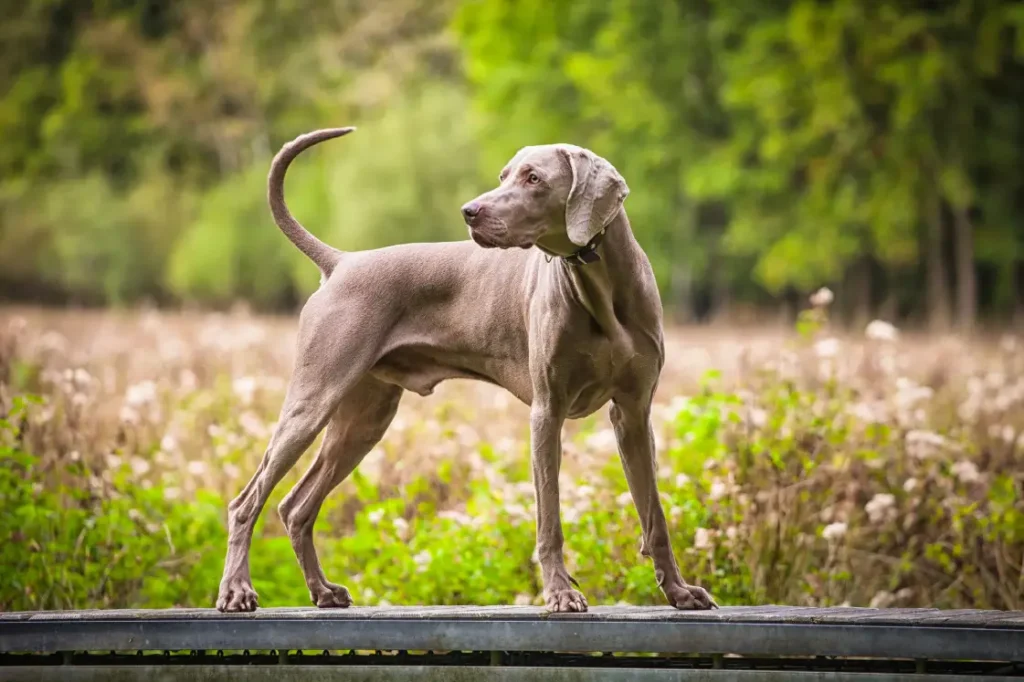
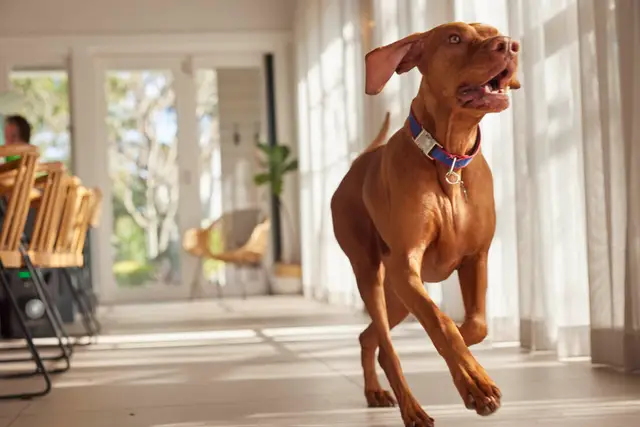
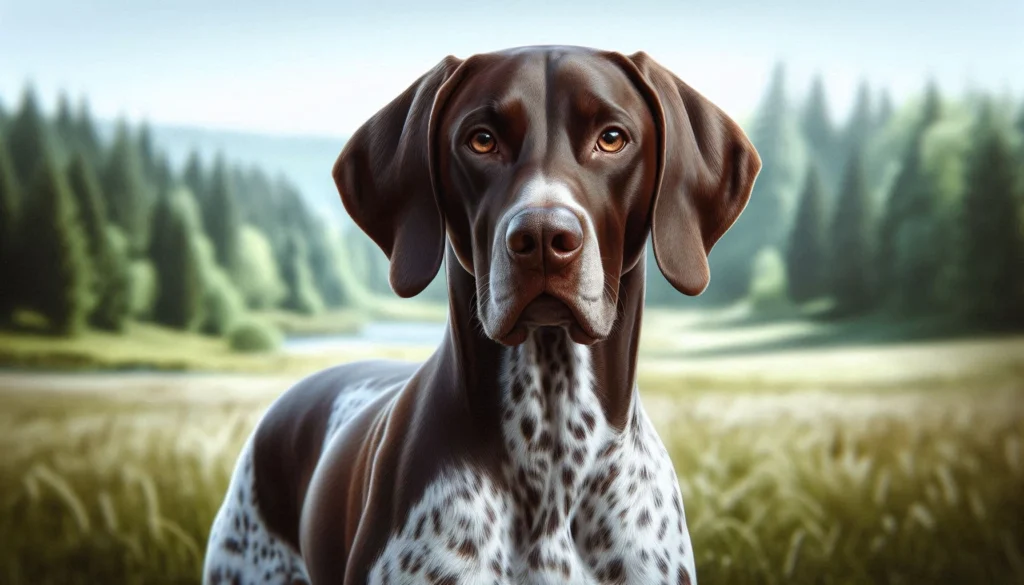
- Weimaraner: Known for its sleek, silver-gray coat and striking blue or amber eyes, the Weimaraner is a versatile hunting dog with a friendly and energetic personality.
- Vizsla: This Hungarian breed is characterized by its golden-rust coat and affectionate nature. Like Pointers, Vizslas are excellent hunting companions and make great family pets.
- German Shorthaired Pointer: Closely related to the Pointer, this breed is slightly more robust and has a short, dense coat. They share similar hunting instincts and are equally energetic and intelligent.
Conclusion
In summary, the Pointer dog breed is a remarkable combination of elegance, agility, and friendliness. Its rich history, distinct physical characteristics, and amiable temperament make it a favorite among hunters and families alike. Whether you’re drawn to its hunting prowess or its affectionate nature, the Pointer is a breed that can bring joy and companionship to the right home. If you’re considering a new pet, exploring the Pointer dog breed could be a rewarding endeavor.
FAQ
Is the Pointer a dangerous dog?
No, the Pointer is not considered a dangerous dog. They are known for their friendly and sociable nature. However, like any breed, proper training and socialization are essential to ensure good behavior.
Is the Pointer the best guard dog to protect you or your family?
While Pointers are loyal and alert, they are not typically used as guard dogs. Their friendly disposition makes them more likely to greet strangers than to deter them. For protection purposes, breeds specifically trained for guarding might be more suitable.
